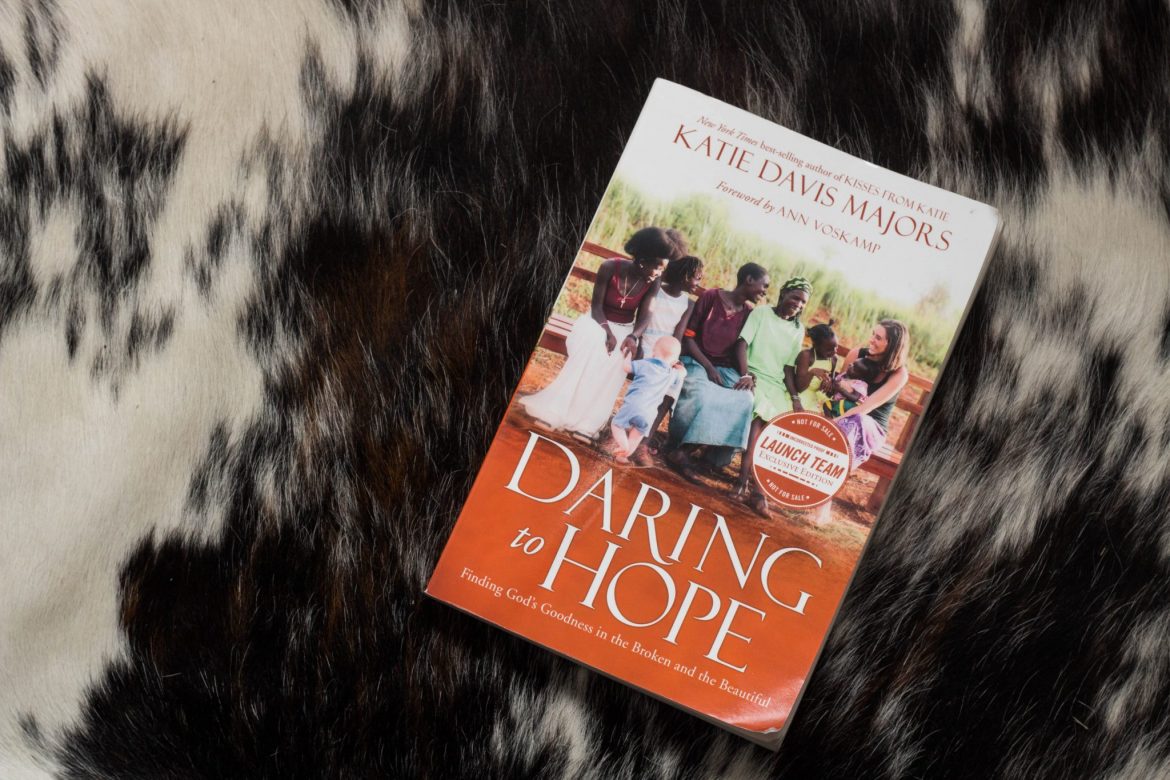We often hear the phrase “God is good.” We sing it in songs, we declare it from pulpits and we throw it at the end of our social media posts. God is good when the sun is shining to create the perfect lighting for our Instagram picture. He is good when everything is falling into place for that promotion. He is good when the sick are healed and when babies are born, but is he still good when it floods? Is he still good when everything is falling apart, and there is death instead of life?
In her new book, “Daring to Hope: Finding God’s goodness in the broken and the beautiful,” Katie Davis Majors, best-selling author of “Kisses from Katie,” takes on the question, where is God in the hard times? Through a series of personal stories, Majors takes her readers into the heart of Jinja, Uganda, to a house of 13 adopted daughters, a constant cycle of strangers and a whole lot of hope.
After her high school graduation in 2007, Majors temporarily moved to Uganda to be a kindergarten teacher. The move became permanent in 2008 as she fell in love with the people of Uganda and began her nonprofit: Amazima, meaning “truth” in Luganda, the most widely spoken Ugandan language. Its mission is to provide for the needs of Ugandan families and children. This includes a sponsorship program to send children to school, as well as an afterschool ministry to feed them and teach them about Jesus.
Majors’ first book, “Kisses from Katie,” focuses on her first few years in Uganda and the miraculous ways she saw God moving through her story. “Daring to Hope” picks up where her previous book ends, but with a twist. Rather than sharing the God-glorifying, happy stories, common in “Kisses From Katie,” Majors dives into the challenges and pain that have also come with her move to Uganda.
Majors’ story may seem detached from life in America, but the questions she asks are common to all Christians. She searches for God in the injustice of the world, in the death of close friends for whom she poured out her heart in prayer. She searches for him when she feels the blessings are passing her by and she isn’t receiving the answers that she’s searching.
And she finds him. She finds him not above the mess, but in the midst of it. She invites her readers to see God’s presence in their dark places. She dares them to hope even when things do not go as planned and pain seems to overwhelm them. She reveals God’s faithfulness in her own life as an example to readers of God’s nearness in tragedy.
She asks readers to look into their own lives and ask themselves, “After living in God’s goodness for so long does it just take one hard day to forget?” God has been good to each of us, why would he stop now? Every hurt is an opportunity not to run from God, but to run to him. Majors stresses that God is near, and he is good even when the endings are not. She tells readers that pain does not minimize God’s goodness, rather it allows us to see and feel it a deeper way.
